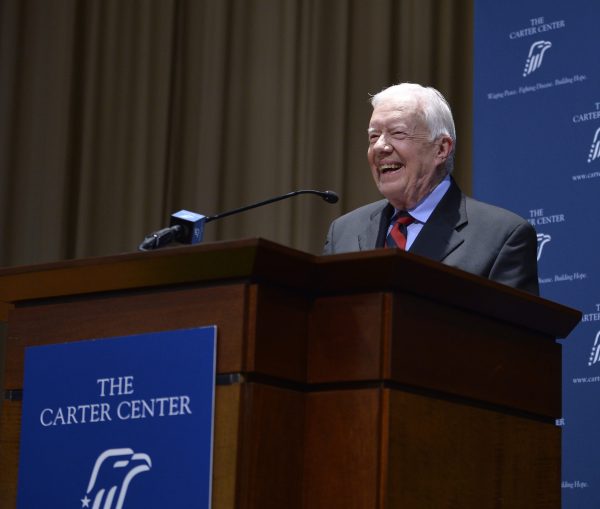Last Updated on December 30, 2024 4:57 pm by INDIAN AWAAZ

AMN / WEB DESK
Former US President Jimmy Carter passed away last night at his home in Plains, Georgia, at the age of 100. He was the oldest living President of all time and the third U.S. President to visit India. Mr Carter had been suffering from an aggressive form of melanoma, a skin cancer, with tumors that had spread to his liver and brain.
He had stopped medical treatment and was receiving hospice care at home. His death was announced by the Carter Center in Atlanta. A Democrat, former President Carter served one term from 1977 to 1981. After his presidency, he carved out an extraordinary post-presidency life and was awarded the Nobel Peace Prize in 2002.
When Carter took the oath of office as president of the United States on January 20, 1977, he promised a “government as good as its people.”
He presided over four turbulent years. Rising inflation and growing unemployment marred the domestic priorities of his administration. He scored victories in foreign policy with a peace agreement between Egypt and Israel and the Panama Canal treaty. However, a hostage crisis in Iran dominated his final years in the White House and contributed to his defeat in the 1980 general election.
But Carter liked to say the end of his presidency in 1981 was the beginning of a new life, traveling the world “fighting disease, building hope, and waging peace.”
As the head of the Carter Center, the Carters traveled to more than 80 countries monitoring troubled elections, mediating disputes, and fighting diseases. This active post-White House life eventually led to the Nobel Peace Prize in 2002.
“I look upon the Carter Center work as an extension of what I tried to do as president. You know, we brought peace between Israel and Egypt. We opened up a humongous relationship with Latin America with the Panama Canal treaty,” he said. “So what I have done since then has been kind of an extension. But I do not think there is any doubt that when I won the Nobel Peace Prize, for instance, it was because of the work of the Carter Center. So, I would be perfectly satisfied to have a legacy based on peace and human rights. I mean, who would not?”
United Nations Secretary-General Antonio Guterres praised Carter’s “commitment to international peace and human rights.
